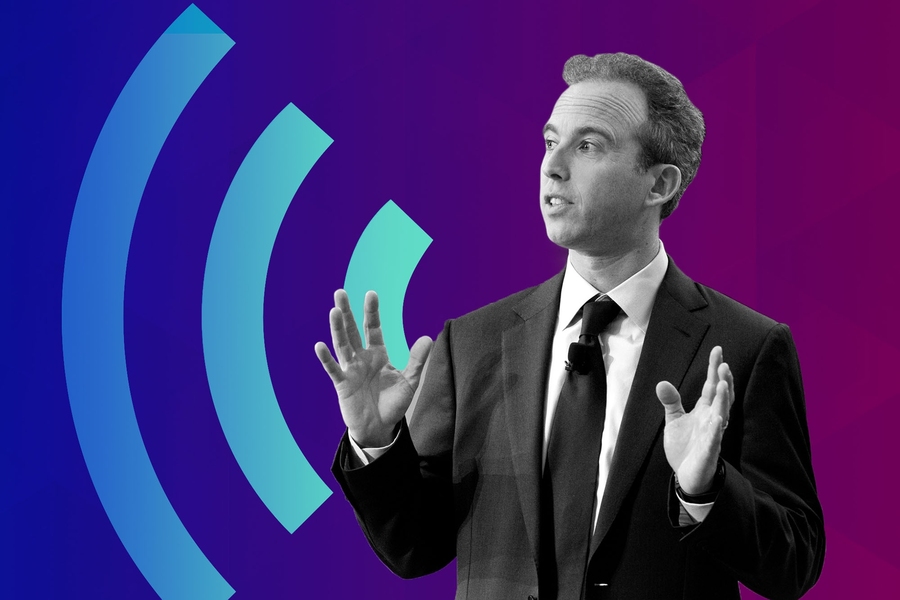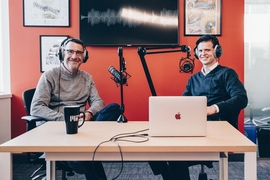Angie Hicks of Angie’s List went from doorsteps to NASDAQ. Facebook founder Mark Zuckerberg turned his dorm room idea into a Silicon Valley corner office. A co-founder “blind date” between Julie Rice and Elizabeth Cutler sparked the cult-like following of Soul Cycle.
Sure, there were challenges (and legal battles) along the way, but happy endings came for these entrepreneurs — which make for easy fairytales to tell in glossy profiles and curated news sites.
Frederic Kerrest, MBA ’09, wants to change that with his newly launched podcast “Zero to IPO.”
“It’s a lonely thing to try to build a company,” said Kerrest, who is the co-founder and COO of identity management company Okta. “It’s super-hard. People go through these bumps in the road, but all they read in the media is people who are doing amazingly. You’re like ‘Aw man, I’m the only one this is happening to,’ and the reality of it is it’s happening to everyone. Even really successful people. It’s kind of letting people know you’re not all alone out there.”
“Zero to IPO” has launched three episodes, with plans to release a new episode weekly. There are 12 episodes total, each one dedicated to a step in the journey toward an initial public offering. These steps include many firsts — idea, team, big win, screw-up — as well as what happens after the IPO.
Kerrest has the street cred to back up the podcast. He started Okta in 2009, during the second semester of his graduating year at the MIT Sloan School of Management. The company went public in 2017 and is valued at more than $7 billion.
In the past 10 years, Kerrest has received many phone calls from entrepreneurs with questions about starting and growing their own businesses. What he’s noticed, he said, is the trend toward questions on what he called “tribal knowledge.”
“There’s no website that’s got all the answers to how do I structure my first round of financing, how do I hire my first salesperson, or after my first five customers how do I get my next 50,” Kerrest said. “How do I pay the first people, what should my equity pools look like; really getting into the concrete details. It’s almost like you have to have gone through it.”
The same went for media coverage, he explained. What was missing from articles, news segments, and business podcasts were the challenges and questions entrepreneurs would call Kerrest about.
“Very rarely was there anything about the bumps in the road, or the trials and travails,” he said.
Kerrest reached out to a college friend, Josh Davis (a contributing editor at WIRED), and the two decided to tap into Kerrest’s network of successful entrepreneurs to see who would be willing to share their own stories and advice.
Guests on the show include Julia Hartz of Eventbrite, Parker Harris of Salesforce.com, and Patty McCord of Netflix.
Each step will include stories from entrepreneurs, and some of their stories might be conflicting, Kerrest said. One entrepreneur might have decided not to pursue a lot of venture capital money in favor of managed growth, while another might have wanted to go all in. Their views are opposing, but they were both successful in their own ways.
“So entrepreneurs can walk away [feeling like] it was entertaining but also educational,” Kerrest said. “Like I learned some things, specific tips from people who have done it before, who are well-known, who are almost being vulnerable. They’re telling you what happened to them that you’re never going to hear about otherwise.”







